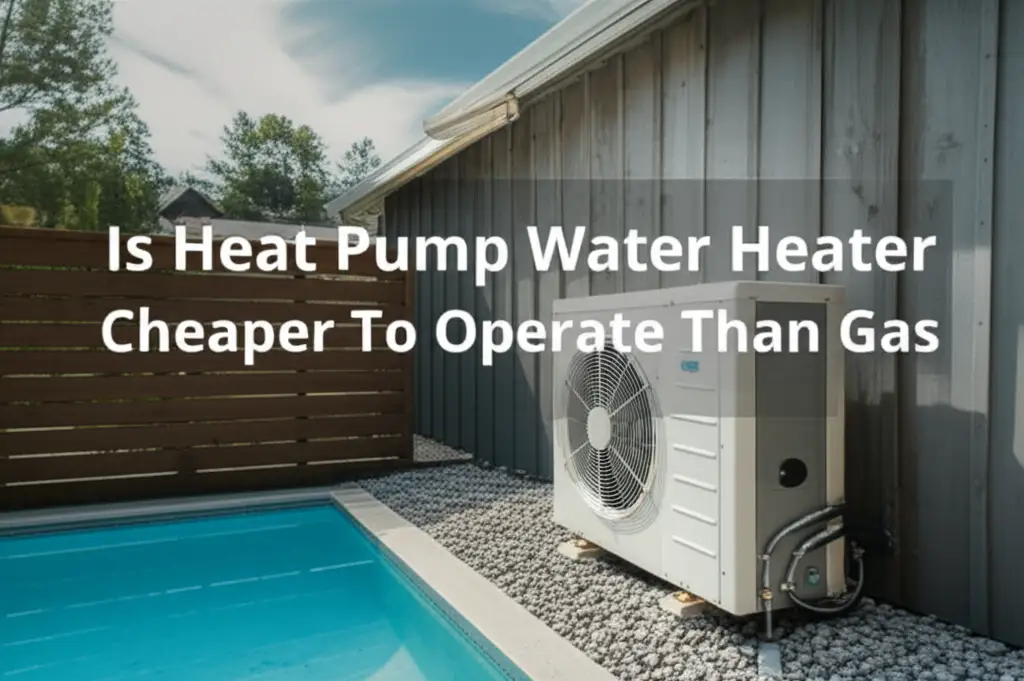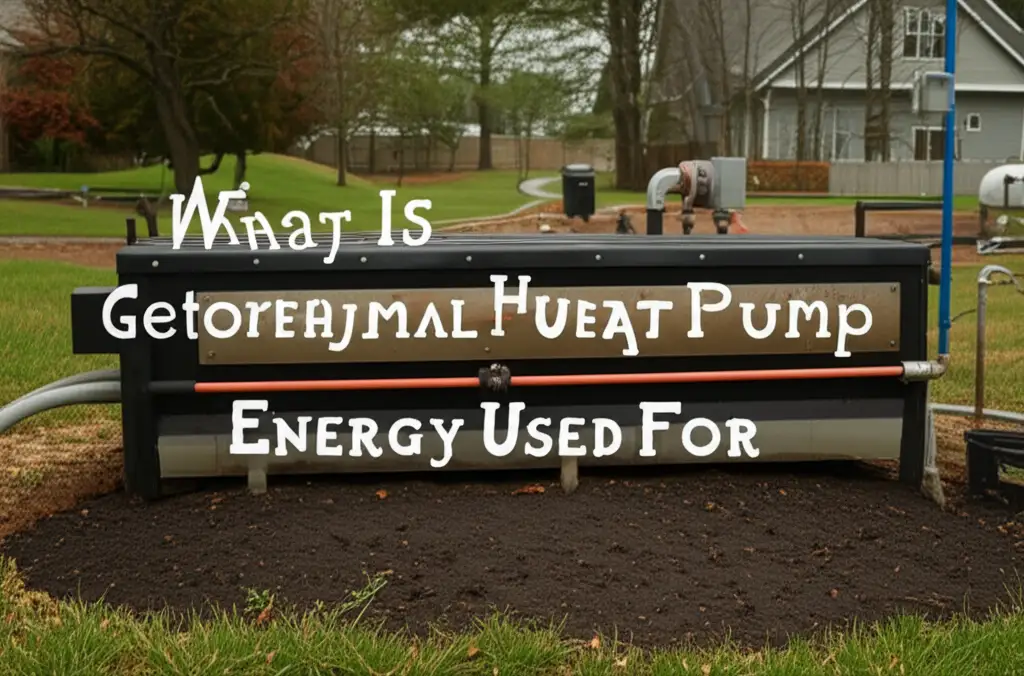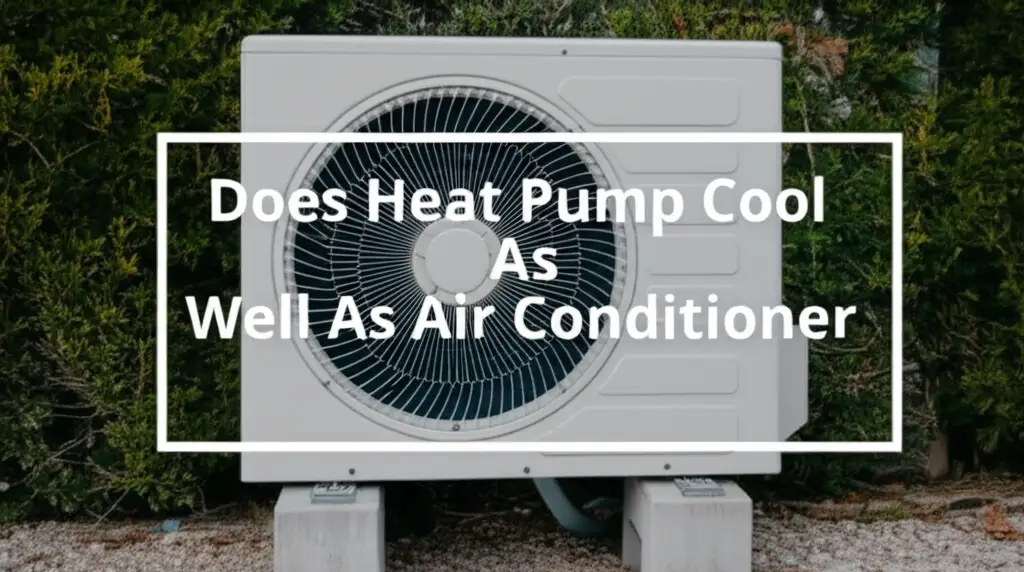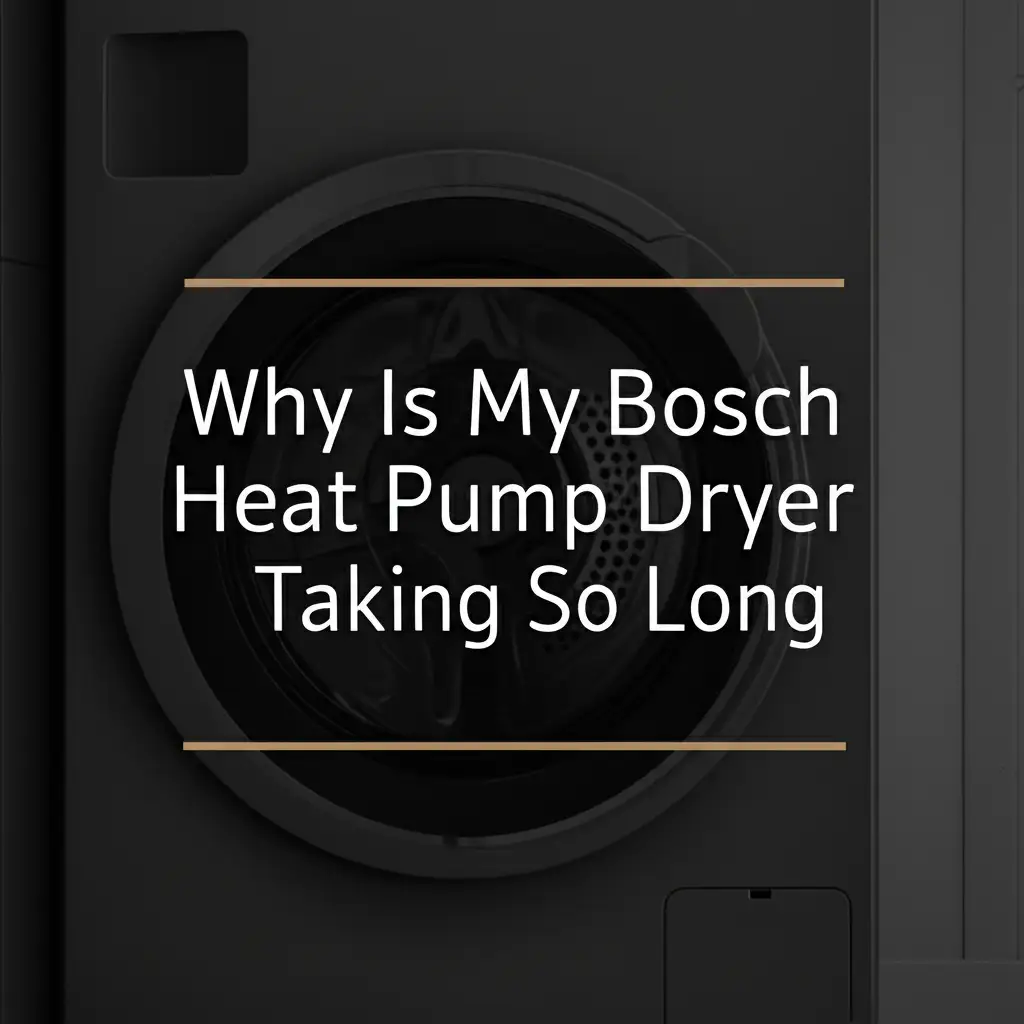· Katria Melrose · Home Energy Efficiency · 14 min read
Is Heat Pump Water Heater Cheaper To Operate Than Gas

Heat Pump vs. Gas Water Heater: Cheaper to Operate?
We all love a hot shower. We also appreciate a lower utility bill. For many homes, the water heater is a major energy user. This often brings up an important question: Is a heat pump water heater cheaper to operate than gas? This is a common concern for homeowners thinking about upgrading or replacing their current system.
I want to help you understand the real costs involved. We will look at energy efficiency, initial purchase prices, and long-term savings. By the end of this article, you will have a clear picture. You can then make an informed decision about your home’s hot water supply.
Takeaway
- Heat pump water heaters are generally cheaper to operate long-term. They use significantly less energy than gas models.
- Initial purchase and installation costs for heat pumps are higher. However, energy savings often offset this over several years.
- Operating costs depend on local utility rates. Compare electricity and natural gas prices in your area.
- Consider incentives like tax credits and rebates. These can lower the upfront cost of a heat pump water heater.
- Maintenance helps both types perform best. Regular cleaning ensures optimal efficiency.
Is a heat pump water heater cheaper to operate than gas?
Yes, a heat pump water heater is generally cheaper to operate than a gas water heater. It uses electricity to move heat, not generate it directly, making it significantly more energy-efficient. This leads to lower monthly utility bills over time, despite potentially higher upfront costs for installation.
How Heat Pump Water Heaters Work
Heat pump water heaters are also known as hybrid water heaters. They represent a significant leap in hot water technology. They do not create heat directly. Instead, they move existing heat from the surrounding air into the water tank. Think of it like a refrigerator working in reverse.
These units contain an evaporator, a compressor, and a condenser. Air is drawn into the unit by a fan. The air passes over the evaporator coil. Refrigerant inside the coil absorbs heat from this air. This causes the refrigerant to turn into a warm gas.
The compressor then increases the temperature and pressure of this gas. This hot gas flows to the condenser coil. The condenser coil wraps around the water tank. Heat transfers from the hot gas to the cooler water inside the tank. As the refrigerant loses its heat, it condenses back into a liquid. The cycle then repeats. This method is incredibly efficient. It allows the unit to produce more heat energy than the electrical energy it consumes. For every unit of electricity used, a heat pump water heater can deliver two or three units of heat.
Energy Efficiency Explained
The efficiency of a heat pump water heater is measured by its Uniform Energy Factor (UEF). A higher UEF number means greater efficiency. Modern heat pump water heaters often have UEF ratings of 3.0 or higher. This means they are three times more efficient than traditional electric resistance water heaters. This high efficiency is why they are so attractive for cost savings. They use very little electricity to provide a lot of hot water. For more details on heat pump operation, you can learn about how long does air source heat pump take to heat water.
How Gas Water Heaters Work
Gas water heaters are a common sight in many homes. They have been a reliable source of hot water for decades. These units operate by burning natural gas or propane. This combustion creates heat that directly warms the water inside a storage tank. The design is straightforward and effective.
A burner assembly sits at the bottom of the water tank. When the thermostat calls for hot water, gas flows to the burner. An igniter then lights the gas. The flame heats a flue pipe that runs up through the center of the tank. This flue transfers heat to the water surrounding it. Exhaust gases exit through the top of the flue.
Most gas water heaters use a pilot light or an electronic igniter to start the burner. They also have a vent system. This system removes harmful combustion byproducts from your home. Gas water heaters provide hot water quickly. They can often recover faster than electric resistance models after heavy use.
Understanding Gas Efficiency
The efficiency of gas water heaters is also measured by their Uniform Energy Factor (UEF). Gas models typically have UEF ratings between 0.60 and 0.80. This means they convert 60% to 80% of the fuel’s energy into usable hot water. The remaining energy is lost as exhaust gases or standby heat loss. While they heat water rapidly, this direct combustion method is less efficient than heat transfer. This difference in efficiency significantly impacts long-term operating costs.
Comparing Operating Costs: Electricity vs. Gas
The core of determining which water heater is cheaper to operate lies in comparing their ongoing energy consumption and local utility rates. A heat pump water heater uses electricity, while a gas water heater uses natural gas or propane. The cost per unit of energy varies greatly depending on where you live. This makes direct comparisons sometimes complex but always essential.
Heat pump water heaters are incredibly efficient. They typically use 60-70% less energy than standard electric resistance water heaters. This is because they move heat rather than creating it. For every dollar of electricity consumed, they can generate the equivalent of two to three dollars worth of heat. Gas water heaters, while effective, lose a portion of their heat through exhaust and standby losses. Their efficiency is lower when compared to heat pump models.
To calculate your potential savings, you need to know your average electricity price per kilowatt-hour (kWh) and your natural gas price per therm (or cubic foot). You also need the UEF rating of the water heaters you are considering. A simple formula can help estimate annual operating costs. Multiply the estimated annual energy consumption (based on UEF) by your local utility rates. You will quickly see that despite differences in fuel types, the superior efficiency of heat pumps often leads to lower monthly bills. This is a primary reason why many homeowners find a heat pump water heater cheaper to operate than gas.
For instance, if electricity costs $0.15/kWh and gas costs $1.50/therm, a heat pump with a UEF of 3.5 will cost much less to run than a gas unit with a UEF of 0.70. You will see these savings accumulate each month.
Upfront Costs and Installation Considerations
While a heat pump water heater is cheaper to operate than gas in the long run, its initial purchase and installation costs are typically higher. This is an important factor to consider in your budget. Gas water heaters, being simpler in design and more common, usually have a lower sticker price.
A standard 50-gallon gas water heater might cost anywhere from $500 to $1,500. Installation can add another $300 to $1,000, depending on plumbing and venting requirements. For a heat pump water heater of similar capacity, the unit itself can range from $1,200 to $3,500. Installation costs can also be higher, from $500 to $2,000. This is because they might require specific electrical wiring or more complex plumbing adjustments. They also need a well-ventilated space, ideally with at least 1,000 cubic feet of unconditioned air, like a basement or garage. This space requirement ensures the heat pump can efficiently draw heat from the air.
Sometimes, upgrading from a gas water heater to a heat pump water heater requires additional work. This could include running a new 240-volt electrical line to the unit. Gas lines and venting for the old unit might need capping or removal. These extra steps can increase the total installation expense. Despite the higher upfront cost, it is essential to look at the total cost of ownership. The significant energy savings of a heat pump water heater often lead to a faster payback period. This means the money you save on utility bills eventually covers the initial investment.
Long-Term Savings and Incentives
The real financial benefit of a heat pump water heater shines in its long-term savings. While the initial investment is higher, the substantial reduction in monthly operating costs quickly adds up. For many households, these savings can range from $200 to $500 or more per year compared to traditional gas or electric resistance water heaters. This means that over the lifespan of the unit, which is typically 10-15 years, you could save thousands of dollars. This makes a heat pump water heater cheaper to operate than gas over time.
Calculating the payback period helps determine when your energy savings will offset the higher upfront cost. For example, if a heat pump water heater costs $1,500 more upfront but saves you $300 per year, your payback period is 5 years ($1,500 / $300). After this point, every dollar saved on energy bills is pure profit.
Governments and utility companies often provide incentives to encourage the adoption of energy-efficient appliances. These incentives can significantly reduce the effective purchase price of a heat pump water heater.
- Federal Tax Credits: The Inflation Reduction Act of 2022 offers a tax credit for energy-efficient home improvements. This can include 30% of the cost of a heat pump water heater, up to $2,000. This is a direct reduction in the amount of tax you owe.
- State and Local Rebates: Many states, counties, and cities offer their own rebate programs. These can provide instant discounts or checks back to homeowners.
- Utility Company Programs: Your local electricity provider might offer rebates for installing energy-efficient appliances. Always check their website or contact them directly before purchasing.
These incentives can dramatically shorten the payback period. They make the decision to invest in a heat pump water heater even more financially attractive. Always research available programs in your specific area.
Key Factors Affecting Your Water Heating Bill
Several variables influence how much you pay for hot water, regardless of whether you have a gas or heat pump water heater. Understanding these factors can help you minimize your utility bills and ensure your system runs efficiently.
One major factor is your household’s hot water demand. A larger family or frequent guests will naturally use more hot water, leading to higher energy consumption. If you take long, hot showers daily, your water heater works harder. Consider adjusting your habits, like taking shorter showers, to reduce demand.
Local climate plays a crucial role for heat pump water heaters. These units extract heat from the surrounding air. They perform best in unconditioned spaces like basements, garages, or utility closets, especially in warmer climates or during warmer months. In very cold environments, their efficiency can decrease. This is because there is less heat for them to extract from the air. In such cases, they may rely more on their supplemental electric resistance heating element, which reduces savings. Gas water heaters are less affected by ambient air temperature as they generate their own heat.
Maintenance also impacts efficiency for both types of heaters. Over time, sediment can build up in the bottom of a water heater tank. This sediment acts as an insulator. It reduces the efficiency of heat transfer for both gas and electric models. Regular flushing of the tank can prevent this. You can learn how to how to clean sediment from water heater to improve efficiency. For heat pump models, cleaning the air filter and coils is essential. This ensures optimal heat exchange. Neglecting maintenance can significantly increase operating costs. This is true for any type of water heater. You can find general tips on how to clean water heater to keep it running smoothly.
Finally, the insulation of your hot water pipes and tank (if not already well-insulated) can save energy. Heat loss from pipes means your water heater works harder to maintain temperature. Wrapping pipes can be a simple, cost-effective upgrade.
Environmental Benefits and Comfort
Beyond the financial savings, choosing a heat pump water heater offers significant environmental advantages. Traditional gas water heaters burn fossil fuels. This releases carbon dioxide (CO2) and other greenhouse gases into the atmosphere. These gases contribute to climate change. By contrast, heat pump water heaters are electric. If your electricity comes from renewable sources like solar or wind, your hot water production can be nearly carbon-neutral. Even when powered by the typical grid mix, heat pump water heaters emit less CO2 overall due to their high efficiency. This dramatically reduces your home’s carbon footprint. It aligns with global efforts to combat climate change.
Switching to a heat pump water heater means you are making a positive impact on the environment. You reduce your reliance on fossil fuels. You also support the transition to a cleaner energy future. This benefit extends beyond just your household.
From a comfort perspective, both gas and heat pump water heaters provide reliable hot water. However, there are some nuances. Gas water heaters often have a faster recovery rate. This means they can reheat a tank of water more quickly after heavy use. This might be a consideration for very large families with high, continuous hot water demand. Heat pump water heaters, especially larger models, generally provide ample hot water for most households. They operate quietly, though they do produce a low hum similar to a refrigerator. They also cool and dehumidify the surrounding air as a byproduct of their operation, which can be a bonus in a damp basement or utility room.
Safety is also a factor. Gas appliances carry a small risk of carbon monoxide leaks or gas fires. Electric heat pump water heaters eliminate this risk. They provide a safer alternative for your home. This peace of mind is an added, non-monetary benefit.
FAQ Section
How much can I save with a heat pump water heater?
Savings vary by location and usage. On average, a heat pump water heater can save you $200 to $500 annually on energy bills compared to standard electric or gas models. These savings are due to their superior energy efficiency, as they move heat rather than generate it directly.
Do heat pump water heaters work in cold climates?
Yes, heat pump water heaters can work in cold climates. However, their efficiency decreases in very low temperatures. They might rely more on supplemental electric resistance heating in such conditions. Optimal performance occurs in areas like basements or garages, where ambient temperatures stay above 40°F (4.4°C).
What is the lifespan of a heat pump water heater compared to gas?
Both heat pump and gas water heaters typically have a lifespan of 10 to 15 years. Regular maintenance, such as flushing the tank to remove sediment, can help extend the life of both types of units. Proper installation also plays a key role in their longevity and efficient operation.
Are there any special installation requirements for heat pump water heaters?
Yes, heat pump water heaters have specific installation needs. They usually require a dedicated 240-volt electrical circuit. They also need sufficient clear space around them (at least 1,000 cubic feet of unconditioned air) to draw heat effectively. Proper drainage for condensation is also necessary.
Can I replace my gas water heater with a heat pump model?
You can replace a gas water heater with a heat pump model. However, this conversion often involves additional costs. You will need to cap the gas line and install new electrical wiring (240V). You also need to ensure adequate space for the heat pump unit.
How does the noise level compare between heat pump and gas water heaters?
Gas water heaters are generally very quiet, only making noise when the burner fires up. Heat pump water heaters produce a low hum, similar to a refrigerator or dehumidifier, as their fan and compressor operate. The noise level is usually not a concern, especially if the unit is in a basement or utility room.
Conclusion
The question of “is heat pump water heater cheaper to operate than gas” has a clear answer for most homeowners: yes, they generally are. While the upfront investment for a heat pump water heater can be higher, their remarkable energy efficiency leads to significant long-term savings on your utility bills. These savings, combined with attractive federal and local incentives, can quickly offset the initial cost.
Choosing a heat pump water heater is not just a financial decision; it is also an environmental one. You will reduce your carbon footprint and contribute to a cleaner, more sustainable future. Consider your local utility rates, hot water needs, and available space when making your decision. Evaluate your options carefully.
If you are considering an upgrade or replacement, I encourage you to explore the benefits of a heat pump water heater further. Speak with a local HVAC professional. Get personalized quotes for installation and learn about specific rebates in your area. Making the switch can lead to substantial savings and a greener home for years to come. Your budget and the planet will thank you.
- heat pump water heater
- gas water heater
- operating costs
- energy efficiency
- home savings





